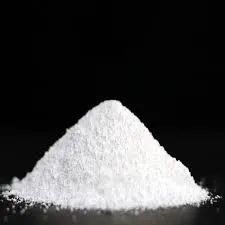An Overview of Pharmaceutical API Raw Materials
In the pharmaceutical industry, Active Pharmaceutical Ingredients (APIs) play a crucial role as the key components responsible for the intended therapeutic effects in drugs. These APIs are the biologically active components that deliver health benefits, making them fundamental to the development of any medication. The quality, efficacy, and safety of APIs directly influence the overall effectiveness of pharmaceutical products. This article delves into the significance of pharmaceutical API raw materials, their production processes, and the regulatory framework governing them.
Understanding API Raw Materials
API raw materials encompass a variety of substances that are used in the synthesis of active pharmaceutical ingredients. They can be categorized into two broad types synthetic and natural. Synthetic APIs are chemically manufactured compounds designed to deliver specific therapeutic effects. Examples include commonly used medications like Ibuprofen and Metformin, which are synthesized through rigorous chemical processes.
On the other hand, natural APIs are derived from plant extracts, animal sources, or microbial cultures. These include substances like morphine, which is derived from opium poppy, or penicillin, sourced from the Penicillium mold. The choice between synthetic and natural APIs often depends on factors such as the desired therapeutic outcome, cost considerations, and availability of raw materials.
Production Process of API Raw Materials
The production of API raw materials involves several critical steps, including synthesis, purification, and formulation. The process begins with the design of the chemical structure, followed by various synthesis methods such as organic reactions, biotransformations, or extraction techniques. Each method is selected based on the physical and chemical properties of the desired product.
Once synthesized, the raw materials undergo purification processes to eliminate impurities and ensure adherence to stringent quality standards. Techniques such as crystallization, distillation, and chromatography play important roles in achieving the required purity levels. The final stage of API production involves formulating these raw materials into their final dosage forms, whether they are tablets, capsules, or injectables.
Importance of Quality Control
pharmaceutical api raw material

Quality control is paramount in the production of pharmaceutical API raw materials. Regulatory bodies such as the Food and Drug Administration (FDA) and the European Medicines Agency (EMA) enforce strict guidelines to ensure that these materials meet established safety and efficacy standards. Quality assurance processes include thorough testing for potency, purity, and contamination to prevent any adverse effects on consumers.
The use of Good Manufacturing Practices (GMP) is essential for manufacturers to maintain a high level of quality throughout the production process. Continual monitoring and validation of processes are conducted to confirm compliance with regulatory standards. This commitment to quality not only guarantees the safety of patients but also builds trust in pharmaceutical products.
Challenges in the API Market
Despite the importance of API raw materials, the market faces numerous challenges. One significant issue is the increasing complexity of drug development, which often requires novel APIs or more sophisticated production techniques. Additionally, the rising costs of raw materials and production processes could impact the availability of affordable medications.
Another challenge is the geopolitical dynamics that affect the global supply chain of API raw materials. Many pharmaceutical companies rely on suppliers from specific regions, which can introduce vulnerabilities in sourcing due to trade disputes, regulatory changes, or even natural disasters. Companies must proactively manage these risks by diversifying their supply sources and investing in local production capacities.
The Future of Pharmaceutical API Raw Materials
Looking ahead, the pharmaceutical industry is poised for innovative advancements in the area of API raw materials. The rise of personalized medicine is driving the demand for tailored APIs that cater to individual patient needs. Additionally, advancements in synthetic biology and automation are expected to revolutionize the production processes, making them more efficient and sustainable.
The integration of artificial intelligence (AI) in drug discovery and development is another promising trend. AI can expedite the identification of viable API candidates and optimize their production processes, significantly reducing development times and costs.
In conclusion, pharmaceutical API raw materials are indispensable for the effective functioning of the healthcare system. Their production, quality control, and regulatory oversight ensure that patients receive safe and effective medications. As the industry continues to evolve, addressing the challenges in the API market while leveraging emerging technologies will be crucial for ensuring the ongoing supply of high-quality pharmaceuticals.

